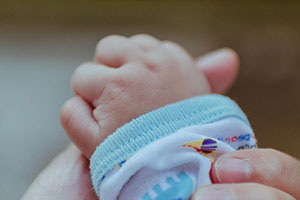
The University of Iowa is a top tier research institution, ranking 22nd in NIH funding per faculty member.
The faculty at UI create a successful translational research enterprise due to the robust pipeline of scientists and well-trained professional staff. Together we are empowered to address the challenges confronting clinical and translational research.
Please click the following links for materials on ICTS' new Clinical Research Trials Office:
Mission & Goals
Research Community
Services
The ICTS has established several research cores and services to reach a broad network of individuals and create a holistic approach to translational research at the University of Iowa.
 Biomedical Informatics Core
Biomedical Informatics Core
 Biostatistics, Epidemiology, and Research Design Core
Biostatistics, Epidemiology, and Research Design Core
 Child Health Research Support Core
Child Health Research Support Core
 Clinical Research Unit
Clinical Research Unit
 Engagement, Integration, and Implementation (EII)
Engagement, Integration, and Implementation (EII)
 Mobile Technology Lab
Mobile Technology Lab
 Research Study Coordinators
Research Study Coordinators
 Regulatory Core
Regulatory Core
Learn how our services work together to give you the resources you need throughout the research process.
Download our research service routes.
Resources
- ACTS Membership
- Cite the grant
- ClinicalTrials.gov requirements
- Clinical Trials website data map
- Documenting subjects in Epic
- Free editing services
- Human Subjects Office Clinical Trials Resources
- I-CART information
- Iowa Research Heroes Registry
- New NIH policy
- NIH protocol template
- NIH Clinical e-Protocol Writing Tool
- NIH policy resources
- NIH Public Access Policy
- REDCap
- Request a letter of support
- Seniors Together in Aging Research
- SMART IRB benefits
- SMART IRB webinars
- Trial Innovation Network
- University of Iowa Health Care Research Studies
Educational opportunities
- Academy for Research Professionals
- Carver College of Medicine research events
- Clinical Lecture Series
- Qualitative Research Lecture Series
- Trial Innovation Center webinars
Funding opportunities
- University of Iowa funding sources
- NCATS SBIR and STTR Funding
- Keck Foundation Grant Program
- MKF: Cancer Research Grant Program
Other opportunities
Learn about seven new technologies improving health.
Help the Institute for Clinical and Translational Science at the University of Iowa continue making new strides in medical research by citing the NIH CTSA program grant UM1TR004403.